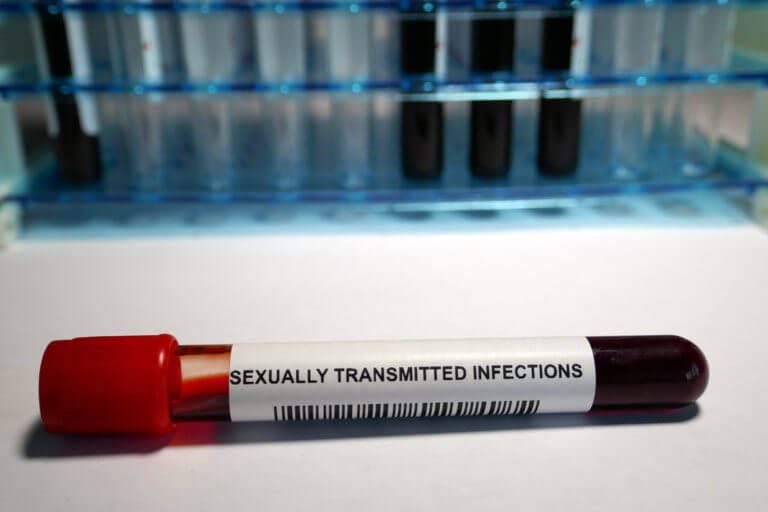
An STD (Sexually Transmitted Disease), now known as a sexually transmitted infection (STI), is a bacterial or viral infection that is contracted by engaging in intimate sexual activity (orally, vaginally, anally, etc.). One partner has to be already infected in order for the other person to become infected. It’s important to note that you cannot contract an STD by touching, kissing, or any other way but having sex, sharing an intravenous needle, or coming into direct contact with infected body fluids. If pregnant, becoming infected with an STD can result in serious consequences for you and your unborn baby. How can an STD affect your pregnancy?
Common STDs and Pregnancy
The most common STDs can affect pregnancy. Some may prevent you from getting pregnant; others can affect your baby’s health. Some of the most common STDs include:
- Chlamydia
- Genital Herpes
- Gonorrhea
- HPV (Cervical Cancer)
- Syphilis
It’s important to note that Hepatitis (HBV and HCV) and HIV/AIDS are viruses that are transmitted through contact with infected body fluids, usually blood. While not necessarily considered an STD, hepatitis and HIV/AIDS can be transmitted through sexual activity.
Risk
Having an STD during pregnancy can raise the risk of miscarriage, premature labor, and stillbirth. STDs usually pass on to your baby through the placenta, the organ in your uterus responsible for nourishing baby with oxygen and nutrients through the umbilical cord. STDs can also be transmitted when in labor and delivery, or when the water breaks. Because newborns are extremely susceptible to infection and sickness due to a not yet matured immune system, infections such as STDs can be life-threatening and can lead to long-term health problems as well as growth and development issues.
Testing
As some STDs can affect a fetus during pregnancy or a baby during childbirth, it’s important to know your sexual health status and to get treatment.
The Centers for Disease Control and Prevention recommends that all pregnant women be screened for STDs, especially HIV, HBV, syphilis and chlamydia. Even if you and your partner may not believe you are at risk, some STDs can lay dormant for years without symptoms, so you or your partner could be at risk or infect and not even know it.
Screenings are imperative to determine if you have contracted an STD, especially if you are pregnant. Your gynecologist (OB/GYN) will screen for infections during your first prenatal visit. Be sure to let your doctor know your medical and family history, as this can determine risk factors and probability of having or contracting an STD. If you or your partner has had a previous STD, you are more at risk. Getting tested and screened early could save you and your baby’s life. If you are at high risk, you will be screened in your third trimester. To avoid contracting an STD only have protected sex until you and your partner can confirm a mutual clean bill of health.
To learn more about STDs and pregnancy, and to get tested, call University OB/GYN Associates at (315) 464-5162 to request an appointment or request an appointment online.



